
Casiopea, now known in its fourth iteration as Casiopea-P4, is a Japanese jazz fusion band formed in 1976 by guitarist Issei Noro, bassist Tetsuo Sakurai, drummer Tohru "Rika" Suzuki, and keyboardist Hidehiko Koike. In 1977, keyboardist Minoru Mukaiya and drummer Takashi Sasaki joined, replacing Koike and Suzuki. They recorded their debut album Casiopea (1979) with guest appearances by American jazz musicians Randy Brecker, Michael Brecker, and David Sanborn. In 1980, drummer Akira Jimbo joined the band. Casiopea had released over 40 albums in Japan and around the world. The group suspended all activity in 2006.

Issei Noro is a Japanese jazz fusion guitarist who is one of the founding members and the main composer of the band Casiopea. He has released 6 solo albums and a compilation. He also works as an instructor of a guitar clinic, and as a producer.
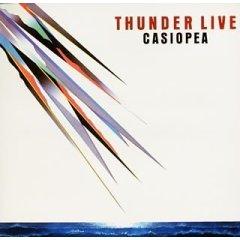
Thunder Live is the third album and first live album released by jazz fusion group Casiopea in 1980. This album marked the first appearance of drummer Akira Jimbo, who replaced Takashi Sasaki that same year.

Make Up City is the fourth album and the third studio album by Casiopea released on November 21, 1980.
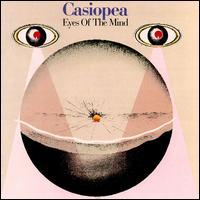
Eyes of the Mind is the fifth album and the fourth studio album by Casiopea, released in 1981. The album was recorded in Los Angeles.

Cross Point is the sixth album and the fifth studio album by Casiopea recorded and released in 1981.

Mint Jams is the seventh album and the second live album by Japanese jazz-fusion band Casiopea, released on May 21, 1982. The album's title is an arrangement of the band members' first and last initials.

4×4 FOUR BY FOUR is the eighth album and sixth studio album by Casiopea recorded and released in 1982. Lee Ritenour, Harvey Mason, Nathan East, and Don Grusin participated in the recording of this album.

Photographs is the ninth album and the seventh studio album by Casiopea, recorded and released in 1983.
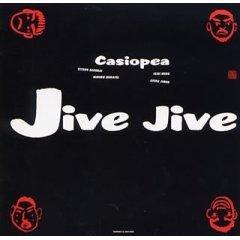
Jive Jive is the tenth album and the eighth studio album by Casiopea, recorded and released in 1983.
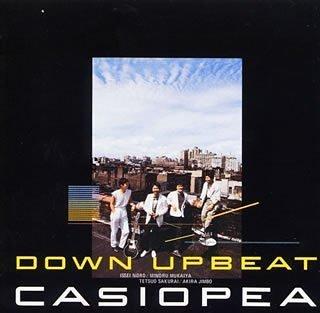
Down Upbeat is the twelfth album and the ninth studio album by Casiopea, recorded and released in 1984.

Halle is the 13th album by Casiopea released in 1985.

Sun Sun is the 15th album by Casiopea, recorded and released in 1986.

Casiopea Perfect Live II is the fourth live album and second live video released by the jazz fusion group Casiopea.
On February 25, 1987, it was released with a laser disc from laser disc Co., Ltd. 7" single record "Asian Dreamer" was distributed as the first board purchase privilege.
On July 10, 1987, it became a LP record from Alfa Records.
In 2000, it was recurred as DVD "CASIOPEA LIVE HISTORY PART-I". Finally, as a privilege picture, Issei Noro interview was added.
This is contains tour final concert at U-Port hall that was Cassiopeia’s tenth anniversary tour.
Platinum is the 17th album released by the jazz fusion group Casiopea in 1987. The album featured a cover of "Bridge Over Troubled Water"--a song originally written by Paul Simon.

Casiopea World Live '88 is the fifth live album released by the jazz fusion group Casiopea in 1988. It is a compilation Album consisting of recordings of some of their songs played in concert during Casiopea's World Tour in 1988 that promoted their previous album "Euphony". It is also a collaboration album with two Japanese horn sections from two other bands, the brass section of "Spectrum" and the brass Section of "The Tops". Additionally, it is the first album Spectrum recorded since their breakup in 1981, and is their penultimate album. Lead trumpeter/vocalist of Spectrum, Ichiro Nitta, was also the Producer of "The Tops" at the time this album was released. Tops released one more album, "Soul Children", the following year, before they disbanded in 1991. This was also the last album to feature Tetsuo Sakurai on Bass and Akira Jimbo on Drums, who both left to form the band Jimsaku.
The Party AUDIO STACK is the 20th album by Japanese jazz fusion band Casiopea. In addition, the video was released simultaneously as The Party VISUAL STACK on June 25, 1990 with LaserDisc and VHS. Also, when we sent the application tickets attached to "AUDIO STACK" and "VISUAL STACK", we got The Party EXTRA STACK by lottery.
This album marked the joining of Yoshihiro Naruse (bass) and Masaaki Hiyama (drums) to the band. This is also Casiopea's 20th overall album.
Full Colors is the 21st album by the jazz fusion group Casiopea recorded and released in 1991. At the same time, the video work MOTION PICTURE FROM FULL COLORS was also released.
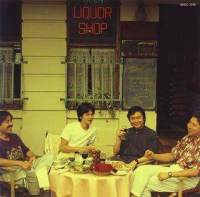
Active is the 22nd album by the jazz fusion group Casiopea recorded and released in 1992. The album was recorded in Australia, Also where Casiopea's Live Album "Made in Melbourne" was recorded.
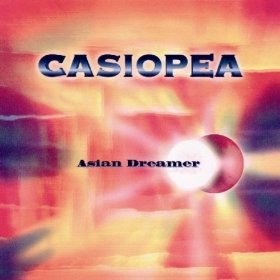
Asian Dreamer is the twenty-seventh studio album released by the jazz fusion group Casiopea in 1994. This album features re-arranged and re-recorded versions of their original songs with their second lineup of the band after their original, first lineup.
















